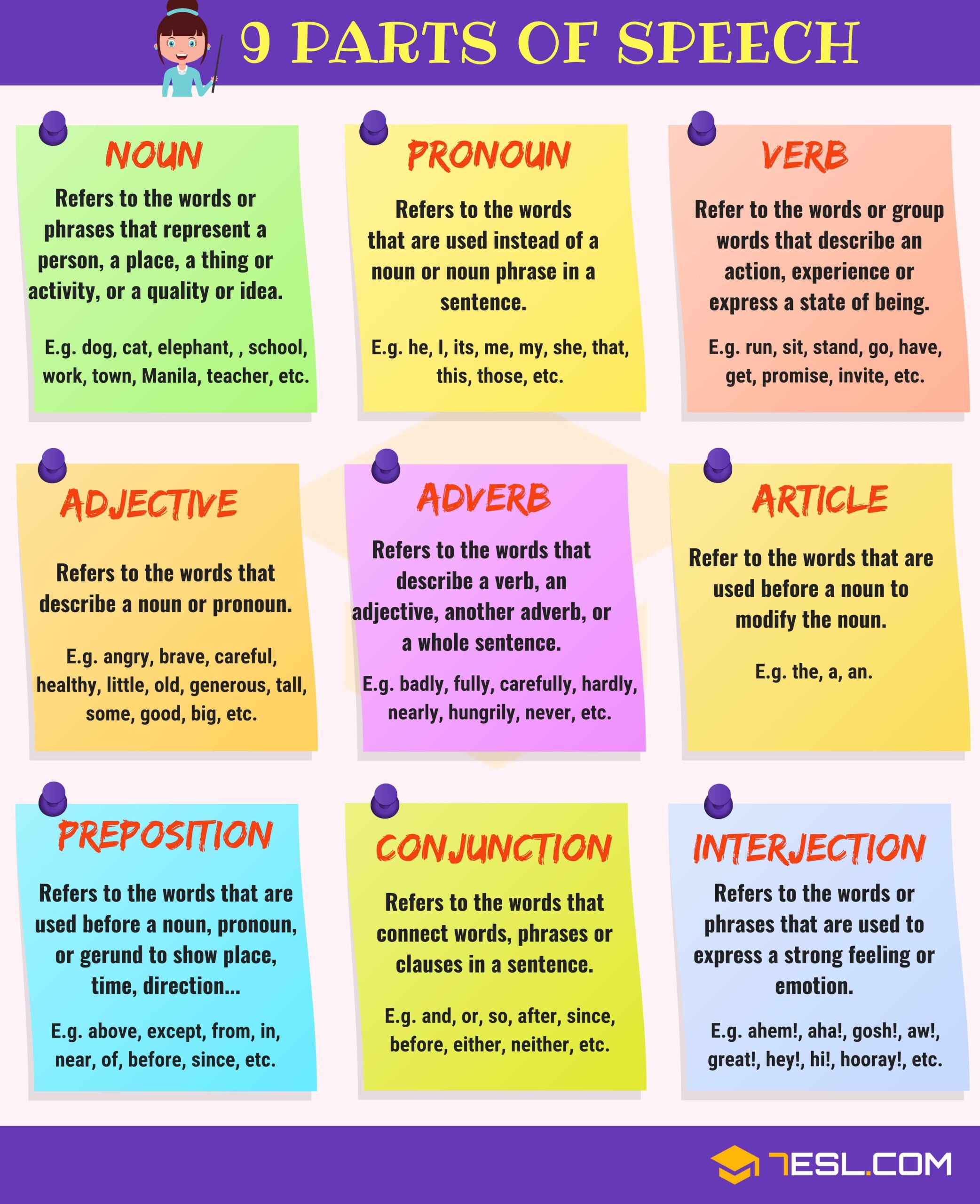Understanding the different parts of speech is essential for anyone looking to improve their writing skills. Nouns, adverbs, adjectives, verbs, and pronouns are the building blocks of any sentence, and knowing how to use them correctly can make your writing more clear and effective.
Each part of speech plays a specific role in a sentence, and learning how to identify and use them can help you communicate your ideas more effectively. Let’s take a closer look at nouns, adverbs, adjectives, verbs, and pronouns.
Nouns, Adverbs, Adjectives, Verbs, Pronouns
Nouns: Nouns are words that represent people, places, things, or ideas. They can be concrete, such as “table” or “dog,” or abstract, such as “love” or “happiness.” Nouns can also be common or proper, singular or plural.
Adverbs: Adverbs modify verbs, adjectives, or other adverbs. They often describe how, when, where, or to what extent an action is performed. Adverbs can add detail and specificity to a sentence, helping to paint a clearer picture for the reader.
Adjectives: Adjectives are words that describe or modify nouns or pronouns. They provide more information about a noun, such as its size, color, or quantity. Adjectives help to make your writing more descriptive and engaging.
Verbs: Verbs are action words that express an action, occurrence, or state of being. They are the backbone of any sentence and are essential for conveying meaning. Verbs can be transitive or intransitive, and they can also be conjugated to show tense, mood, and voice.
Pronouns: Pronouns are words that take the place of nouns in a sentence. They help to avoid repetition and make sentences more concise. Pronouns can refer to people, places, things, or ideas, and they come in various forms, such as personal pronouns, demonstrative pronouns, and indefinite pronouns.
By understanding the roles of nouns, adverbs, adjectives, verbs, and pronouns in a sentence, you can improve your writing skills and communicate more effectively. Practice identifying and using these parts of speech in your writing to enhance clarity and precision.
Whether you’re a student looking to improve your academic writing or a professional seeking to enhance your communication skills, mastering the basics of nouns, adverbs, adjectives, verbs, and pronouns is essential. By honing your understanding of these fundamental elements of language, you can become a more confident and effective writer.
